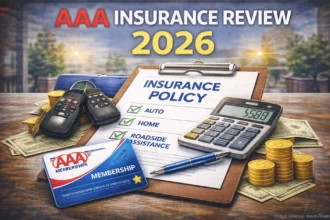Massachusetts residents face unique financial challenges due to the state’s high cost of living and significant student loan burdens. This comprehensive guide explores Massachusetts debt consolidation services and resources available to help Massachusetts residents regain control of their finances and work towards a debt-free future.
The Massachusetts Debt Landscape

Massachusetts is known for its world-class universities and high-paying jobs, but these advantages come at a cost. The state has one of the highest costs of living in the nation, with housing prices in particular far exceeding national averages. For example, the average home price in Boston is over $600,000, compared to a statewide average of $400,000.
This high cost of living, combined with significant student loan debt, can make it challenging for many Massachusetts residents to stay afloat financially. According to recent statistics, the average Massachusetts household carries about $5,141 in credit card debt alone. When coupled with student loans, car payments, and mortgages, many residents find themselves struggling to keep up with monthly payments.
Debt Consolidation Options in Massachusetts
For those feeling overwhelmed by debt, consolidation can be an effective strategy to simplify payments and potentially reduce interest rates. Here are some of the main debt consolidation options available to Massachusetts residents:
Debt Consolidation Loans
Debt consolidation loans involve taking out a new loan to pay off multiple existing debts. This can simplify your finances by combining several payments into one and may offer a lower interest rate than what you’re currently paying on credit cards or other high-interest debt.
Many banks and credit unions in Massachusetts offer debt consolidation loans. Online lenders are another option, often with competitive rates for those with good credit. However, it’s important to carefully compare terms and ensure you’re getting a better deal than your current situation.
Debt Management Programs
Nonprofit credit counseling agencies like InCharge Debt Solutions offer debt management programs (DMPs) that can help consolidate credit card payments without taking out a new loan. These programs work with creditors to potentially lower interest rates and create a manageable repayment plan.
DMPs typically last 3-5 years and involve making a single monthly payment to the credit counseling agency, which then distributes payments to creditors. This can be an excellent option for those struggling with high-interest credit card debt.
Student Loan Consolidation
Given the high number of prestigious universities in Massachusetts, many residents struggle with significant student loan debt. Federal student loan consolidation through the Direct Consolidation Loan program can simplify payments by combining multiple federal loans into one. While this doesn’t lower your interest rate, it can make managing payments easier and potentially qualify you for additional repayment options.
For private student loans, refinancing with a private lender may offer lower interest rates, especially for those whose credit scores have improved since originally taking out the loans.
Home Equity Loans or Lines of Credit
For homeowners in Massachusetts, tapping into home equity can be a way to consolidate debt at potentially lower interest rates. However, this strategy comes with risks, as it puts your home on the line if you can’t make payments.
Balance Transfer Credit Cards
For those with good credit, balance transfer credit cards offering 0% APR introductory periods can provide temporary relief from high-interest credit card debt. This can be an effective short-term strategy, but it’s crucial to have a plan to pay off the balance before the promotional period ends.
Massachusetts-Specific Debt Relief Resources
In addition to national debt relief options, Massachusetts offers several state-specific programs and resources to help residents manage debt:
Massachusetts Loan Repayment Program
This program offers up to $25,000 per year in loan repayment for primary care physicians willing to work in underserved areas of the state. It’s an excellent option for medical professionals looking to tackle student loan debt while serving their community.
Attorney General’s Student Loan Assistance Unit
The Massachusetts Attorney General’s office provides free help to student loan borrowers through its Student Loan Assistance Unit. This unit can help borrowers understand their rights, resolve disputes with loan servicers, and explore repayment options.
Massachusetts Division of Banks
This state agency regulates debt collectors and can assist consumers with complaints about unfair debt collection practices. They also provide educational resources on managing debt and understanding consumer rights.
Massachusetts Legal Assistance Corporation
For those facing serious debt issues, including potential bankruptcy, the Massachusetts Legal Assistance Corporation can provide free or low-cost legal aid to eligible residents.
Massachusetts Health Safety Net
While not directly related to debt consolidation, this program can help eligible residents with medical bills, potentially preventing the accumulation of medical debt.
Tackling Student Loan Debt in Massachusetts
Given the concentration of higher education institutions in Massachusetts, student loan debt is a particular concern for many residents. Here are some strategies specifically for managing student loan debt:
Income-Driven Repayment Plans
Federal student loan borrowers may be eligible for income-driven repayment plans, which cap monthly payments at a percentage of discretionary income. These plans can significantly lower monthly payments and potentially lead to loan forgiveness after 20-25 years of payments.
Public Service Loan Forgiveness (PSLF)
Massachusetts residents working in government or non-profit sectors may be eligible for the PSLF program, which forgives the remaining balance on Direct Loans after 120 qualifying monthly payments.
Massachusetts Educational Financing Authority (MEFA)
MEFA offers refinancing options for both federal and private student loans, potentially lowering interest rates for qualified borrowers.
Employer Student Loan Repayment Assistance
Some Massachusetts employers, particularly in competitive fields like tech and finance, offer student loan repayment assistance as an employee benefit. It’s worth checking if your employer offers such a program.
Tips for Successful Debt Consolidation
While debt consolidation can be an effective strategy, it’s important to approach it thoughtfully. Here are some tips for success:
- Understand the Root Cause: Before consolidating, examine what led to the debt accumulation. Addressing underlying financial habits is crucial for long-term success.
- Compare All Options: Don’t jump at the first consolidation offer. Compare terms, interest rates, and fees from multiple providers.
- Read the Fine Print: Understand all terms and conditions, including any potential penalties or fees.
- Create a Budget: Develop a realistic budget to ensure you can meet your new consolidated payment obligations.
- Avoid Taking on New Debt: Once you’ve consolidated, avoid the temptation to use newly available credit lines.
- Consider Credit Counseling: Nonprofit credit counseling agencies can provide valuable advice and education on managing debt.
Conclusion
Debt consolidation can be a powerful tool for Massachusetts residents looking to regain control of their finances, particularly when dealing with the high costs of living and significant student loan burdens common in the state. By understanding the various options available, from consolidation loans to state-specific programs, residents can make informed decisions about the best path forward.
Remember, successful debt consolidation is just the first step. It should be paired with sound financial planning, budgeting, and a commitment to avoiding future debt accumulation. With the right approach and resources, Massachusetts residents can work towards a more stable financial future, free from the burden of overwhelming debt.
Whether you’re dealing with credit card debt, student loans, or a combination of financial obligations, there are resources available to help. Don’t hesitate to reach out to financial professionals, credit counselors, or state agencies for guidance. Taking that first step towards addressing your debt can open the door to a brighter financial future in the Bay State.
FAQs About Debt Consolidation in Massachusetts
Q: Will debt consolidation hurt my credit score?
A: Initially, there may be a small dip in your credit score due to the credit inquiry. However, if you make consistent payments on your consolidated debt, your score should improve over time as you reduce your overall debt burden.
Q: Can I consolidate both federal and private student loans?
A: While you can consolidate federal loans through the Direct Consolidation Loan program, this doesn’t include private loans. However, you can refinance both federal and private loans together through a private lender, though this means losing federal loan benefits.
Q: Are there minimum or maximum amounts for debt consolidation?
A: This varies by lender and program. Some debt management programs have minimum debt requirements (often around $5,000), while others may have maximum limits. It’s best to check with individual providers.
Q: How long does debt consolidation take?
A: The process of setting up a debt consolidation loan or program can take anywhere from a few days to a few weeks. The repayment period typically ranges from 2-5 years, though some programs may be shorter or longer.
Q: Can I consolidate my debt if I have bad credit?
A: While having good credit makes it easier to qualify for debt consolidation loans with favorable terms, options are still available for those with less-than-perfect credit. Nonprofit credit counseling agencies often have more flexible requirements for their debt management programs.





